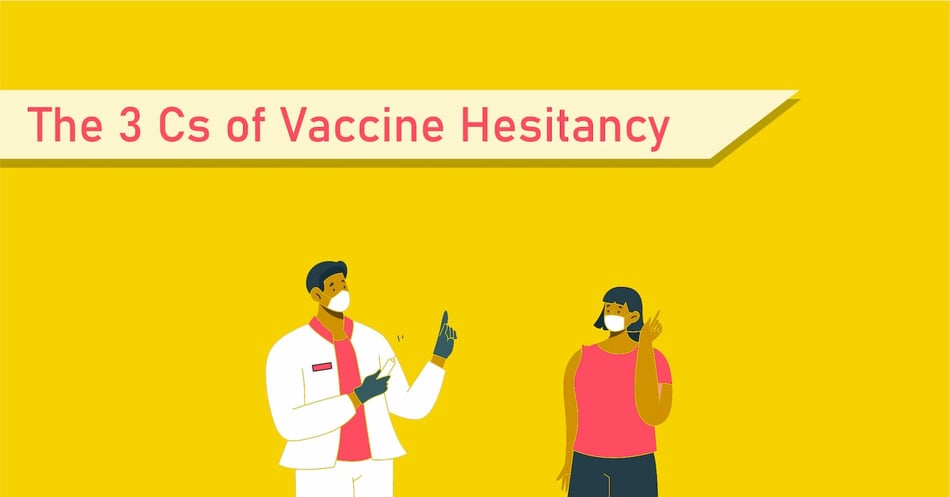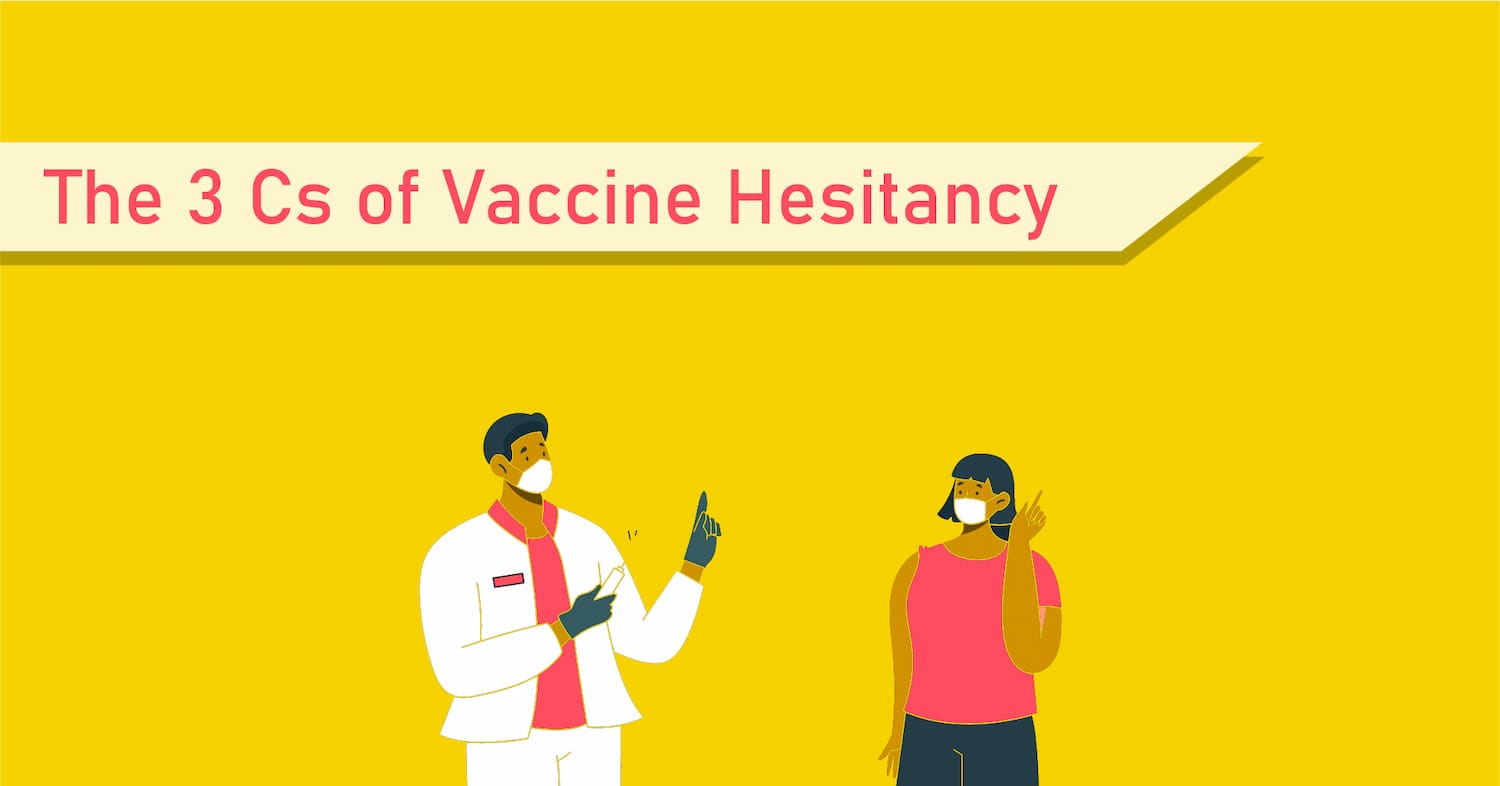The 3 Cs of Vaccine Hesitancy

 Those of us who have gotten the COVID-19 vaccine may often wonder why everyone hasn't gotten the vaccine. It's free, effective, and virtually painless. We may struggle with friends and loved ones who do not see the vaccine the same way, not knowing how to approach the conversation that might convince them to get the vaccine. The need for getting at least 75% of the American population vaccinated has never been more important, as hospitals fill up and the delta variant sweeps the nation, sickening hundreds of thousands of mostly unvaccinated individuals. One way to prepare for "the vaccine conversation" is to consider what epidemiologists call The 3 Cs of Vaccine Hesitancy: Complacency, Confidence, and Convenience.
Those of us who have gotten the COVID-19 vaccine may often wonder why everyone hasn't gotten the vaccine. It's free, effective, and virtually painless. We may struggle with friends and loved ones who do not see the vaccine the same way, not knowing how to approach the conversation that might convince them to get the vaccine. The need for getting at least 75% of the American population vaccinated has never been more important, as hospitals fill up and the delta variant sweeps the nation, sickening hundreds of thousands of mostly unvaccinated individuals. One way to prepare for "the vaccine conversation" is to consider what epidemiologists call The 3 Cs of Vaccine Hesitancy: Complacency, Confidence, and Convenience.
Psychologists and counselors recommend approaching vaccine hesitancy with compassion and an open-mind. The first step is to hear out the person's concerns, and allow them to share their thoughts in a non-confrontational way. Once you have a feel for where their concerns are coming from, you can start to provide some resources and stories according to one of the 3 Cs.
Complacency | I just haven't gotten around to it. I've been careful.
When people say they haven't had time to get it, or say they have been staying home and being careful, what they are saying is that they don't believe they are at risk. They believe that the threat is minimal if they stay home most of the time, wash their hands, and wear their mask. However, with the delta variant surging through the nation, the threat has gone up dramatically. The delta variant is more contagious and more virulent, so it will be easier for even the most careful person to become infected. Even healthy, young people who are unvaccinated are being infected and seriously sickened by the virus.
Confidence | It was approved too fast. It's too new. It won't really protect me.
It is difficult for many folks to believe that a vaccine was created within a year of the beginning of the pandemic. They may not trust that the vaccine went through the proper safety checks. They may have heard that the new delivery method, mRNA, is too new and therefore untested. They may also wonder if the vaccine really makes a difference, since they hear about "breakthrough infections" in the news. For these individuals, it will be helpful to acknowledge that these are legitimate concerns that have scientific answers. Share information about the extensive testing that went on before it was approved, and the millions of people who have gotten the vaccination since it was rolled out with no problems. Take the time to explain how the mRNA vaccine works, how it does not stay in the body and make changes to our DNA. Show them statistics that reveal that 99% of those infected are not vaccinated, and that while the vaccine doesn't prevent exposure, it does prevent serious illness and hospitalization.
Convenience | I can't get time off work. What if side-effects keep me from working?
Missing work is a legitimate concern for many of us. Missing a shift or an afternoon to get a vaccine may not be possible for some people. For these individuals, the best help you may be able to provide is finding them a time and location that you can help them get to. Sometimes folks just need to get the logistics taken care of by someone else! For those worrying about side-effects, you can assure them that they are mild and if they occur, happen within 24 hours of the shot, so they can plan accordingly. They can schedule a vaccine on the day before a day off, for example.
There is a possible fourth C that we did not discuss in today's post: Conspiracy. It just may be that your friend or loved one has deep-seated beliefs that lead them to mistrust science and public figures. Counselors and psychologists urge us to remain in these people's lives but not bombard them with more and more facts and figures. They suggested telling personal stories about ourselves or people they know, but overall remaining available for discussions. It is important for us to protect our own mental and physical health by establishing boundaries with those who refuse to get the vaccine, while still remaining as a lifeline should they change their minds.
Are there any approaches to vaccine hesitancy that you have used with success? Share them below!
![EOScu Logo - Dark - Outlined [07182023]-01](https://blog.eoscu.com/hubfs/Eoscu_June2024/Images/EOScu%20Logo%20-%20Dark%20-%20Outlined%20%5B07182023%5D-01.svg)




